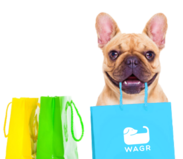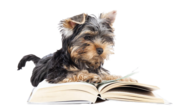Potty training your puppy can be a daunting task, but with patience, consistency, and a well-planned training schedule, it can be a breeze. This guide will provide you with some essential potty training tips to make the process smoother and less stressful for both you and your favourite pup!

Understanding the Puppy Potty Training Age
Before diving into the potty training process, it's essential to understand the ideal age to start training your puppy. Usually, puppies are ready for potty training when they reach around 12-16 weeks old. Younger puppies may have limited control over their bladder and bowel movements, so if you have a younger pup, be patient and wait. Your time to train will come sooner than you think!
Creating a Potty Training Schedule
Establishing a consistent potty training schedule is vital for successful training. Puppies have small bladders and need to relieve themselves many number of times. Try to take your puppy outside every hour, as well as shortly after meals, playtime, and naps. Consistency is key, as it helps your puppy understand the routine and expectations more quickly.

Puppy Potty Training Tips
Here are some additional training tips to support you during the process:
-
Use a command: Choose a specific command such as "go potty" or "do your business" and use it consistently when you take your puppy outside. This helps them associate the command with the action of eliminating.
-
Reward success: Positive reinforcement is important in potty training. When your puppy goes potty outside, praise them enthusiastically for having done such a good job and offer a small treat as a reward. This positive association encourages them to repeat the behaviour.
- Be patient and consistent: Accidents are bound to happen during the training process. It's important not to get frustrated or punish your puppy. Instead, clean up any accidents with an enzymatic cleaner or pee lock powders to remove the scent, and continue with the training process calmly and consistently.
Potty Training Your Puppy in an Apartment
Potty training a puppy in an apartment requires a bit of extra effort. If you don't have easy and immediate outdoor access, you can use puppy pads or create a designated indoor potty area using artificial grass or even a litter box. Introduce your puppy to the indoor potty area and reward them for using it. Remember to gradually transition them to outdoor potty training as they become more comfortable.
Potty Training Your Puppy at Night
Nighttime potty training can present some challenges, but with the right approach, you can minimize accidents. Limit your puppy's water intake a few hours before bedtime and ensure you take them outside to eliminate right before you go to sleep. If your puppy wakes up during the night, take them outside but keep the whole episode calm and quiet to avoid getting the puppy excited to roam or play.

Common Potty Training Mistakes
Here are some common potty training mistakes to avoid:
-
Not taking your puppy out frequently enough: This is one of the most common mistakes that people make. Puppies need to go potty frequently, so it's important to take them out at least every hour.
-
Not being consistent with your potty training routine: Puppies learn best when there is consistency in their routine. If you're not consistent with taking your puppy out and rewarding them for going potty outside, they're more likely to have accidents in the house.
- Punishing your puppy for accidents: Punishment is not an effective way to train a puppy. If you punish your puppy for having an accident, they're more likely to become afraid of you and may start hiding their accidents from you.
Potty training your puppy can be a, well, an interesting process, but it's definitely possible with patience, consistency, and understanding. By following these tips, you'll be well on your way to successfully potty training your pup like a pro!











